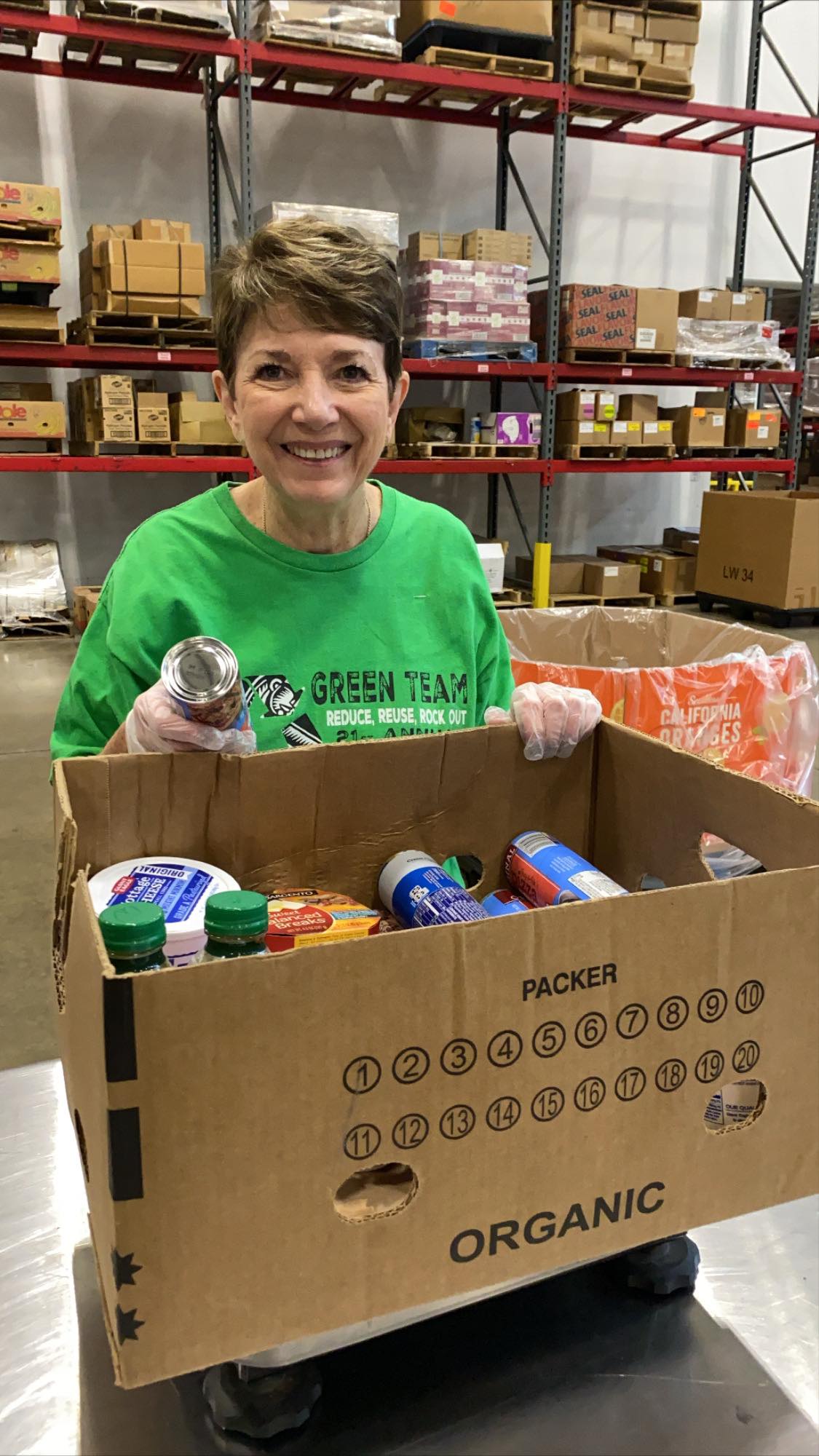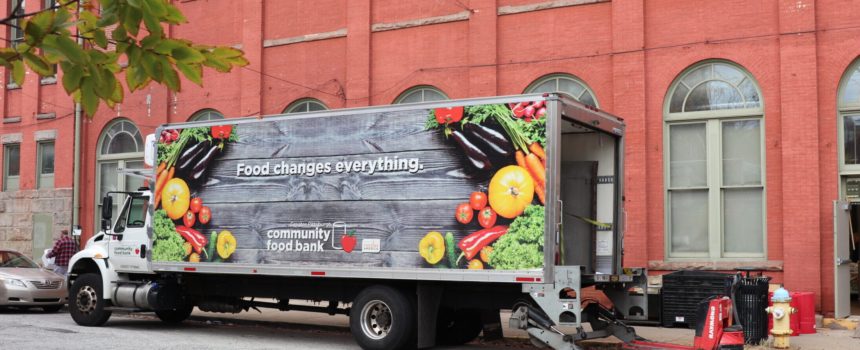Written by Kurt Lindsey, Community Food Connections Coordinator
At Greater Pittsburgh Community Food Bank, the work we do has an impact on the people we serve. It also has an impact on our environment, through methods like waste reduction. We rescue millions of pounds of donated food each year that would have otherwise been sent to a landfill. Why is that so important?
The short answer is: methane.
Methane is a gas that comes from several sources, including coal, natural gas and oil. Methane emissions are also produced from the decay of organic waste in landfills. According to the Environmental Protection Agency, methane made up 10 percent of all greenhouse gas emissions in 2018.

The EPA reports 17 percent of all methane produced from human activity comes from landfills, making it the third-largest source of human-related methane emissions in the United States. When organic waste, like food waste, goes to a landfill it can rise into the atmosphere and contribute to the greenhouse gas effect.
Food waste emissions’ impact on climate change has almost the same amount of impact on the climate as global emissions from road transportation, according to the UN Food and Ag Org. Reducing food waste on our planet would have a significant impact in efforts to reduce overall greenhouse gas emissions and reduce the impacts of climate change. More than 70 billion tons of greenhouse gases could be prevented from being released into the atmosphere if food waste was reduced or eliminated, according to reports from the Washington Post.
So how does this fit in to the work that our food bank does to rescue food?
Each time one of our truck drivers or agency volunteers picks up food donations that would otherwise go to a landfill, we are removing potential methane emissions from the atmosphere. Our trucks also operate in a green and efficient way by always leaving our warehouse and returning with a full load. Our drivers start their day by delivering food to our member agencies, then pick up donated food to be sorted at our warehouse. But how much does that add up to in the big picture?
Quite a lot, actually.
In 2019, the Food Bank’s efforts to rescue food kept more than 17.7 million pounds of food out of landfills and instead made it available to people in need. Our network of member agencies often pick up food from our warehouse in Duquesne. Last year, these agencies picked up a combined average of 48,700 pounds of donated food per day, which may otherwise go to a landfill.
This amount of food rescued is equivalent to 138 million pounds of carbon dioxide that was prevented from entering the atmosphere and affecting the climate in one year. To put that in other terms, the amount of greenhouse gas emissions that our work prevented from being released into the atmosphere in 2019 is equivalent to —
- 34,848 ten-hour flights in greenhouse gas emissions from airplanes
- 265,000 households’ electricity-use for one year
- 338,000 passenger vehicles’ emissions for one year
Issues like hunger and climate change can often seem daunting and leave a person wondering how their actions could make any kind of impact. We know that addressing these issues will require cooperation across the world, but you can make a positive impact on our environment in your daily life. Donate food that would otherwise go to waste or provide a meal to someone in need. Together, we can make a difference and make the world a cleaner, greener place.
Sources
Valuing the Multiple Impacts of Household Food Waste
https://www.frontiersin.org/articles/10.3389/fnut.2019.00143/full
EPA, 2020 – https://www.epa.gov/ghgemissions/overview-greenhouse-gases#methane
Cabon Independent https://www.carbonindependent.org/22.html
UN Report – http://www.fao.org/3/a-bb144e.pdf
Valuing the Multiple Impacts of Household Food Waste https://www.frontiersin.org/articles/10.3389/fnut.2019.00143/full
BBC Article, 2020 https://www.bbc.com/future/article/20200224-how-cutting-your-food-waste-can-help-the-climate
Emissions Calculator, https://www.epa.gov/energy/greenhouse-gas-equivalencies-calculator
